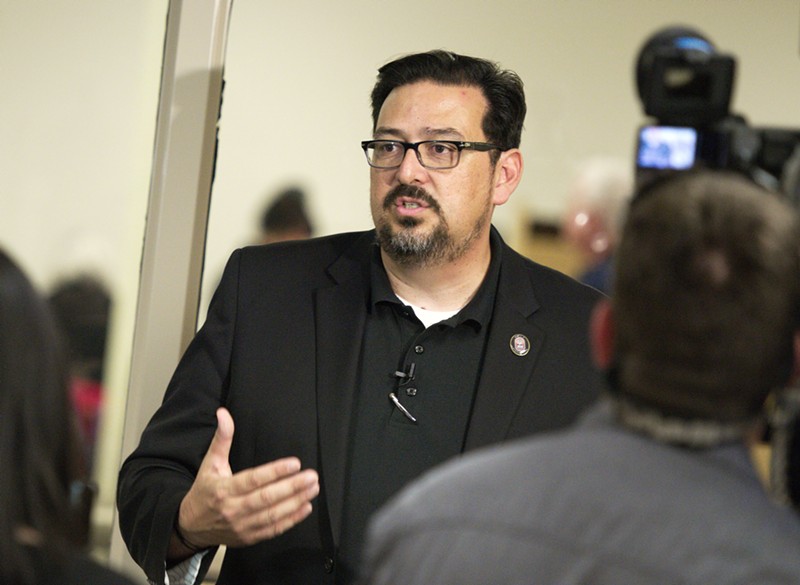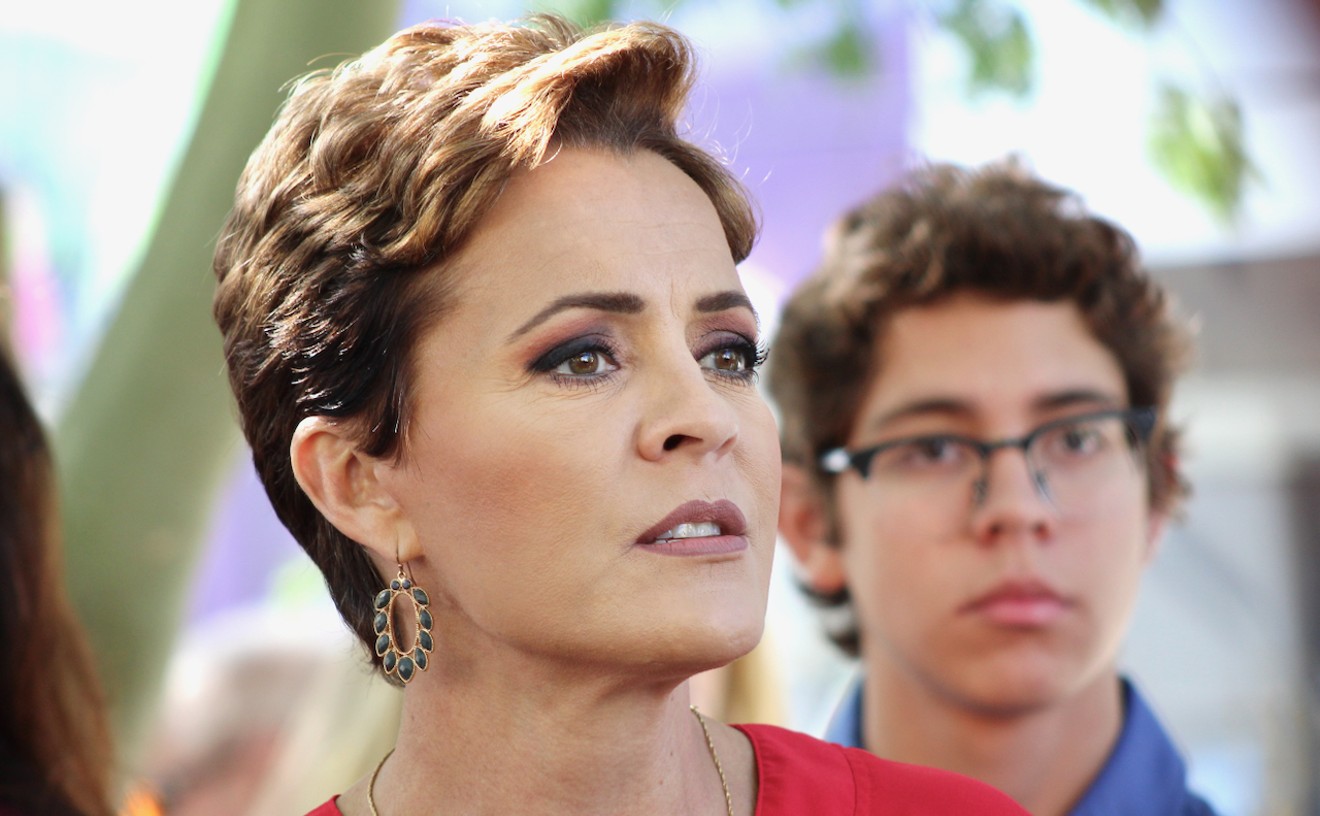With just four weeks left before the November 3 general election, and because it's 2020, there's no shortage of anxiety over whether the election will go smoothly or result in a meltdown of American democracy.
For instance: Can the United States Postal Service get your mail-in ballot to county election officials on-time? Could Russian cyber operatives manipulate voter data? Will electors loyal to President Donald Trump in Republican-controlled states cast their votes for him regardless of the election results? Then there's the fact that Trump has repeatedly refused to commit to accepting the election results, and claiming, without evidence, that mail-in voting is rampant with fraud just when the pandemic is pushing more people to vote-by-mail.
To get a sense of how Maricopa County, one of the most populous counties in the nation (and the largest county in what has become a battleground state), is preparing for the upcoming election and what voters should expect about the process, we called up Recorder Adrian Fontes, who oversees county elections. Fontes, a Democrat, is also currently running for reelection.
New Times: Has there been a surge in mail-in voting in Maricopa County this year due to the pandemic? What should voters do to make sure their ballots get counted?
Fontes: We definitely have a surge in the mail-in ballots. There’s no question about that. We know that there is a huge increase. Over 78 percent of Maricopa County’s voters are getting their ballot in the mail. That’s a massive increase and it’s a very good thing because more and more of our voters are appreciating the convenience that voting by mail gives them. Frankly, it’s much more secure and accountable than traditional polling place voting.
We’re processing the ballots as we receive them, so please vote early. It’s inevitable with the volume that we have that there will be some ballots that show up too late to be tabulated and that’s unfortunate, but the reality is, if folks follow the advice of their local election administrators and they vote early, they can avoid any issues. If you’re going to vote by mail, vote early. If you’re going to bring in your ballot, bring it early.
We now have a free service where voters can track their ballot, so they’ll know exactly when they’ve received it. They’ll get a text message when we receive the ballot, or an email, and then they’ll know that [we] got it.
New Times: What would you say to people who take the president seriously when he derides mail-in voting as plagued by fraud?
Fontes: That guy doesn’t know what he’s talking about. Believe the [election officials] who do the work. Believe the Republicans and Democrats and independents and Libertarians in Maricopa County, the actual citizens who are doing the work here, those are the folks you should believe.
News Times: What's up with these new "voting centers" for in-person voting?
Fontes: We moved from a precinct-based polling model to a voter center model. That was a radical shift because voters no longer have an assigned polling place and we eliminated the need for pre-printed ballots. This is going to be our third election with the vote center model in Maricopa County.
It was a pretty positive shift. In a precinct-based model, what you have is a huge number of polling places on one day, but to the individual voter, you’ve only got one place to vote, so that’s a geographic and time-limited access. In a vote center model, you have a hugely expanded choice of places to vote on election day and you now have weeks ahead of time with multiple locations, including nights and weekends where you can vote in-person.
New Times: What should voters expect on election night?
Fontes: That first big reporting number [on election night] includes as many votes as possible. That 8:00 p.m. number that comes out an hour after polls close includes all the early ballots that we tabulated before election day. If voters want to be part of that first big number, they need to vote early. I expect we’ll be somewhere near 85 percent of all ballots will be cast as early ballots, maybe even higher.
From 9:00 p.m. after, we start reporting out the vote center numbers through the evening. That’s the second bucket [of votes], that’s going to be a much smaller percentage of the total than that 8:00 p.m. number. And then we will have received a lot of early votes on Election Day, so those late early votes are going to have to be signature verified, processed and tabulated; those will be the ones that will be reported out on Thursday, Friday after election day."
New Times: Has your office taken any steps to increase digital security given the concerns about foreign interference in U.S. elections?
Fontes: Our IT systems have gone through a complete review and we’re in the process of making sure that the security is locked down as much as possible. This has been an ongoing review since 2017. We will treat this as a dynamic landscape because the folks who look to do us harm are unlikely to stop.
I’m the only election administration in the country who has a designated security officer who oversees our IT and data systems. That's a new position that I created last year. We’re not aware of any elections department in the country that has an IT officer specifically dedicated to the department.
New Times: What do you make of the spat between Governor Doug Ducey and Secretary of State Katie Hobbs over remote registration and voting access for people who are in medical isolation? You recently filed a lawsuit over the issue. (A Superior Court Judge ruled after this article was published that video voting can be allowed, but only on a case-by-case basis to accommodate voters with disabilities.)
Fontes: I think some people forget the fact that under federal law, we have to make accommodations for all voters and if the state law prevents that from happening, then we have to make appropriate adjustments. We did that in the primary and we continue to try and let every eligible voter vote.
This interview was edited for length and clarity.
[
{
"name": "Air - MediumRectangle - Inline Content - Mobile Display Size",
"component": "18478561",
"insertPoint": "2",
"requiredCountToDisplay": "2",
"watchElement": ".fdn-content-body",
"astAdList": [
{
"adType": "rectangle",
"displayTargets": "mobile"
}
]
},{
"name": "Editor Picks",
"component": "16759093",
"insertPoint": "4",
"requiredCountToDisplay": "1",
"watchElement": ".fdn-content-body",
"astAdList": [
{
"adType": "rectangle",
"displayTargets": "desktop|tablet"
},{
"adType": "rectangle",
"displayTargets": "desktop|tablet|mobile"
}
]
},{
"name": "Inline Links",
"component": "17980324",
"insertPoint": "8th",
"startingPoint": 8,
"requiredCountToDisplay": "7",
"maxInsertions": 25
},{
"name": "Air - MediumRectangle - Combo - Inline Content",
"component": "16759092",
"insertPoint": "8th",
"startingPoint": 8,
"requiredCountToDisplay": "7",
"maxInsertions": 25,
"watchElement": ".fdn-content-body",
"astAdList": [
{
"adType": "rectangle",
"displayTargets": "desktop|tablet"
},{
"adType": "rectangle",
"displayTargets": "desktop|tablet|mobile"
}
]
},{
"name": "Inline Links",
"component": "17980324",
"insertPoint": "8th",
"startingPoint": 12,
"requiredCountToDisplay": "11",
"maxInsertions": 24
},{
"name": "Air - Leaderboard Tower - Combo - Inline Content",
"component": "16759094",
"insertPoint": "8th",
"startingPoint": 12,
"requiredCountToDisplay": "11",
"maxInsertions": 24,
"watchElement": ".fdn-content-body",
"astAdList": [
{
"adType": "leaderboardInlineContent",
"displayTargets": "desktop|tablet"
},{
"adType": "tower",
"displayTargets": "mobile"
}
]
}
]










